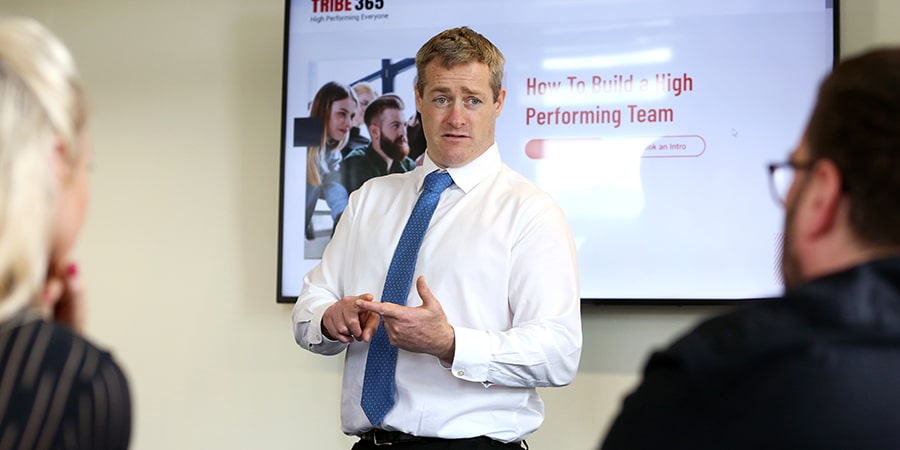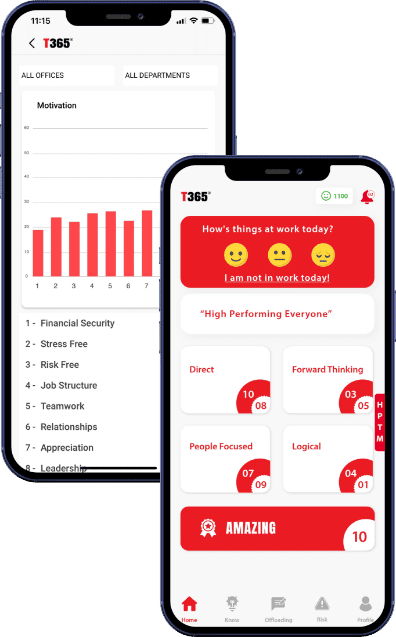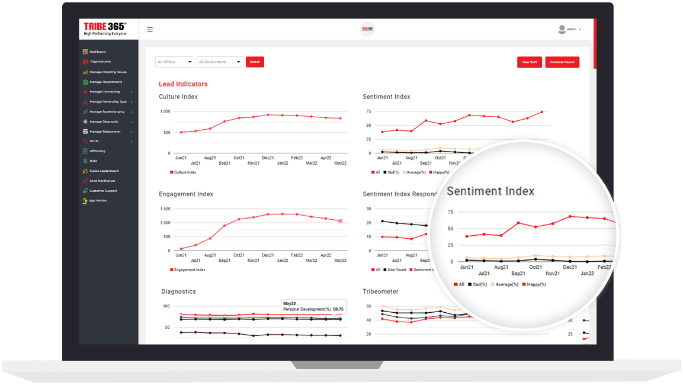How To Increase Productivity In The Workplace
‘Work, work, work’.
‘Nose to the grindstone’.
‘Put some elbow grease into it!’.
‘You only get out what you put in’.
All worthy enough sentiments, we’re sure. ‘But they’re the kind of demotivating ‘motivational’ things that uninspiring teachers preach at school, or which your parents said when trying to make you do chores.’
In short, they’re anachronisms. Victorian peremptories that hold no water in the modern workplace.
There are much better ways to encourage productivity and higher performance that result in growth and greater profitability in the digital age and 21st century.
Three Key Themes
We’re going to explore productivity with three management approaches (two of them still prevalent; and another one new and gaining momentum) in mind during this blog:
- The Dictatorial Approach
People don’t still run organisations this way, do they?
The ‘Our Way Or The Highway’ school of management, whereby staff are expected to do exactly as you’re told by senior managers whenever and however they want it done.
For all the talk of modernising, it will hardly shock you to hear that many big businesses (and smaller ones that ape them) still largely operate in much the same way – in management and cultural terms – as they did in the 80s and before.
- The Consultancy Approach
Some companies seem to think that management consultants are going to swoop in, conduct a wide-reaching survey with employees and come up with new policies that will completely change the culture of that organisation.
And that expectation is littered with problems, as we explain further down.
- HPTM (High Performing Team Members)
What if you could create a high performance environment where everyone was open and honest in a constructive way at all times?
An environment in which people are encouraged to speak up when there’s something they don’t believe in? And to deal with distractions rather than let them get in the way of their performance at work?

What if you could monitor performance and employee sentiment on a daily basis, in an entirely non-invasive way that enables senior managers to make tweaks that result in a happier and more productive workforce?
And what if we were to tell you that this High Performing Teams approach is already helping companies across the world create much-admired work cultures that inspire fantastic team performance and generate greater profitability?
Don’t Be A Victorian Taskmaster
Charles Dickens’s novels were full of depictions of soul-destroying workhouses and work environments ruled over by what were nothing short of dictators.
Oliver Twist’s experience is probably the most obvious example, but the one that strikes us the most – in terms of contrasts and enduring similarities with modern workplaces – is poor old Bob Cratchit’s in A Christmas Carol.
Ah, but it’s a novel, we hear you say. It’s fiction. And it was written more than 175 years ago! How can it possibly have any bearing on modern work environments and productivity?
People usually focus on Ebenezer Scrooge’s miserliness and hatred of Christmas but Dickens also holds up a mirror to the awful working conditions of the time – even in professional settings.
There are some things that really stand out about Bob Crachit that reflect in some modern workplaces with outdated approaches to management:
- Bob is naturally hard-working and conscientious; but he’s also unhappy in his work and unappreciated
- Bob isn’t well enough remunerated or rewarded for his work, but the only alternative is to quit (and put his family into penury)
- Bob has a sick child that his work doesn’t know about – and he’s afraid of telling them because they will think it to be some kind of distraction with no relevance to his work
- Bob has little or no time to spend with his family or doing other things – and he’s therefore an unwilling slave to his work
Can you not see some similarities with some modern workplaces? Big, shiny corporations that seem like places that people will want to work in for their whole working lives; but where people actually completely burn out due to a lack of understanding and acknowledgment that there are other things in life besides work.
Is this the kind of environment you want? Of course not. But do you recognise (even a slither of) some elements of Bob Cratchit’s predicament and experience? Hmm, now there’s a question…
A Consultancy Approach Won’t Cut It Either
Management consultants are notoriously expensive. Sometimes justifiably so; but more often than not, companies are left scratching their heads wondering what they’ve paid out all that money for.
For example, one-off or even quarterly surveys – no matter how cutting-edge they may seem – aren’t going to cut it. They’re snapshots of something going on at a certain point in time, and are often dominated by the loudest voices – the people that have the most to say or hold a disproportionate amount of sway. We’ll explain about an infinitely better way of measuring employee sentiment and satisfaction levels in a moment.

Also, consultancies come and go. Whether they recommend sweeping changes or fiddle with a few processes, companies often end up having to get a new consultancy in a couple of years down the line, because something shiny and new-fangled has come on the scene.
Direct experience also tells us that very good staff often feel they have to leave organisations because consultants have been brought in from the outside that make sweeping changes without really getting to understand the company, because they’ve never actually lived and breathed it.
In short, changes introduced by consultancies are very rarely sustainable. And what hope have you got of creating a great culture, if you’re chopping and changing the whole time?
100% Operational Honesty & Managing Our Conditions = HPTM
One of the key strategies for creating great work environments that generate high performance in individuals and teams is what we refer to as ‘Operational honesty’ and ‘Managing our conditions’.
What does this mean?
Well, it means being honest about the fact that we all have ‘off’ days. We’re not always 100% focused. We all have other things going on in our lives outside work that distract us, whether it be a period of feeling under the weather or picking your kids up from school at an unusual time.
So, it’s imperative that we’re all honest, at all times, about these distractions. And accept – as team members who see ‘The Big Picture’ – that people need to be allowed to deal with these distractions first, rather than try to put their head down and work.
Because, if we’re not completely on our game and passionately believing in what we’re doing because we have other things on our mind (understandably – it’s called ‘being human’!), what chance do we have of being productive and performing well?
Encourage the people in your team to constantly flag up any distractions, so that they can go and deal with them – without fear of consequence! When they get back and know they can pick up where they left off, you can guarantee that they will be incredibly productive. And you’ll be creating a culture of mutual trust, where everyone’s on the same page.
It may be that you may have a major distraction one day, so wouldn’t it be good to know that the team can pick up your tasks and deal with things in your absence? That things won’t just be left to pile up while you’re away dealing with your distraction?
Wouldn’t having that freedom and positive workplace inspire you to be 100% motivated and productive on your return?
Who wouldn’t want to work in an environment like that?
A Happy Team Will Be A Successful Team
Happiness in individuals is the cornerstone for high performance and not knowing if people are happy in your teams is negligent, especially when there is a free tool to help you keep on top of it.

The Tribe 365 App is a world-first that improves organisational cultures by:
- Tangibly measuring staff sentiment on a daily basis
- Empowering employees to give honest, anonymous feedback
- Regularly asking employees whether they’re ‘OK’ – and, if not, asking them why, without fear of any repercussions
- Reminding team members to constantly tell one another how well they’re doing by rewarding them with kudos
- Giving senior managers the data and key insights to improve organisational culture and inspire high performance which leads to greater productivity and profitability
Our Tribe365® App is a world-first app that tangibly measures organisational culture by capturing honest, anonymous daily employee feedback, thereby giving businesses crucial insights that they can use to implement changes that improve company-wide performance.
Interested in learning more? Give me a or one of my colleagues a call on +44 (0) 1325 734 846 or drop an email to team@tribe365.co

Interested in finding out more?
Book a meeting in with the Tribe team
today on +44 (0) 1325734847 or at
team@tribe365.co

















